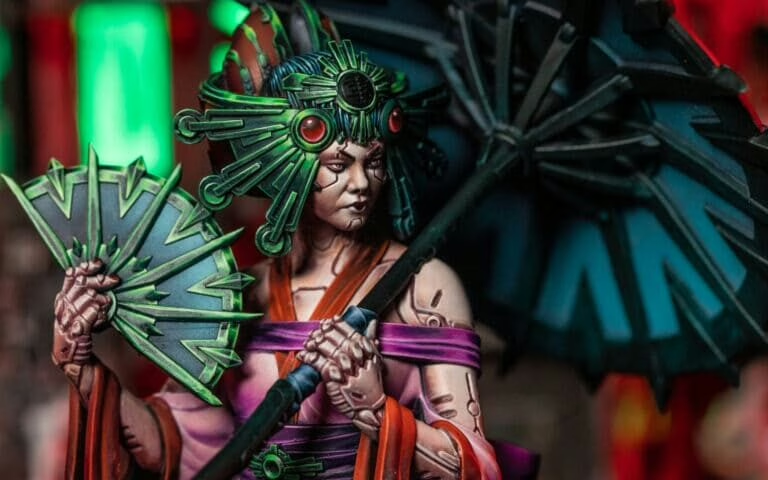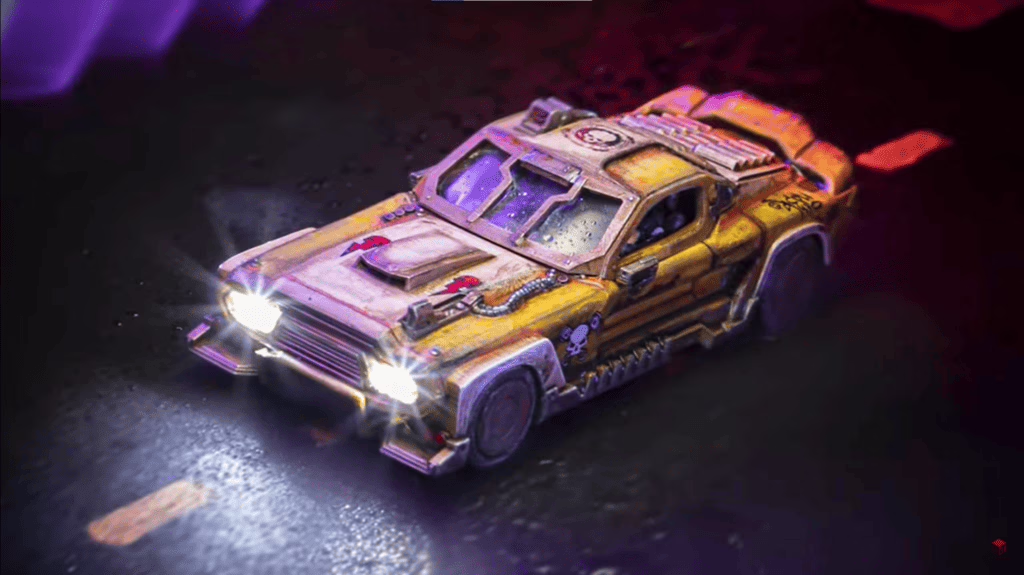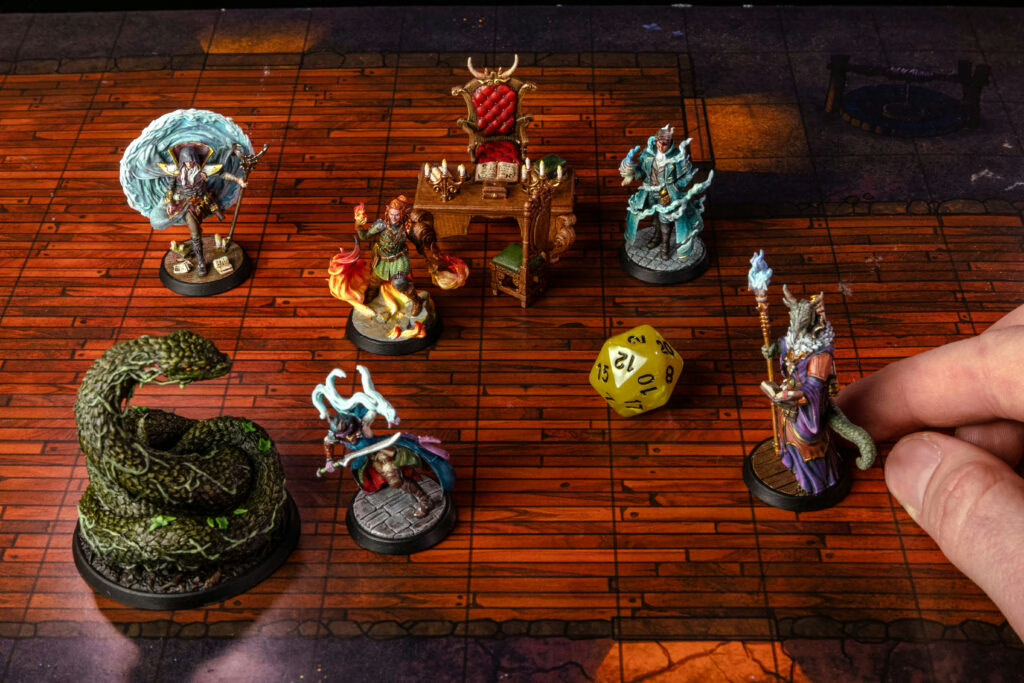The 10 Ultimate Sci-Fi Character Classes You Need
Exploring Something Other Than Fantasy Without Leaving It Behind

Right away, your classes for a science fiction adventure are basically the same as the ones you can choose from your regular RPG during character creation. Modding your RPG to fit a sci-fi campaign (or straight away buying something oriented this way) isn’t, by any means, something new. It’s impossible to deny that tabletop games are closely associated with classical fantasy elements: your warrior, paladin, cleric… The list goes on (and varies, depending on which adventure you start off with).
I know it may seem that both of these genres are pretty distant in terms of adaptability into games. But this article intends to show that their similarities are closer than expected. You could easily “translate” fantasy character classes into a sci-fi setting. You could even get some good examples from pop culture in general to ground some rules and provide excitement to your play sessions. It’s also always a nice excuse to showcase your incredible miniatures, because, come on, look at them.
Sci-Fi vs. The Usual Fantasy
I’ll borrow from Phillip K. Dick to explain what constitutes good science fiction. And with that, how we can discern your new world and characters from the usual fantasy:
“(…) We have a fictitious world; that is the first step: it is a society that does not in fact exist, but is predicated on our known society; that is, our known society acts as a jumping-off point for it; the society advances out of our own in some way, perhaps orthogonally, as with the alternate world story or novel.
(…) Now, to separate science fiction from fantasy. This is impossible to do, and a moment’s thought will show why. Take psionics; take mutants such as we find in Ted Sturgeon’s wonderful MORE THAN HUMAN. If the reader believes that such mutants could exist, then he will view Sturgeon’s novel as science fiction. If, however, he believes that such mutants are, like wizards and dragons, not possible, nor will ever be possible, then he is reading a fantasy novel. Fantasy involves that which general opinion regards as impossible; science fiction involves that which general opinion regards as possible under the right circumstances.
Now, to define good science fiction. The conceptual dislocation—the new idea, in other words—must be truly new (or a new variation on an old one) and it must be intellectually stimulating to the reader; it must invade his mind and wake it up to the possibility of something he had not up to then thought of. Thus, “good science fiction” is a value term, not an objective thing, and yet, I think, there really is such a thing, objectively, as good science fiction.”
May 14, 1981. From a letter by the author, used as the preface of The Collected Short Stories of Phillip K. Dick, Vol.1.
A Sci-Fi Analysis
What Philip K. Dick said makes some sense. Believe there are variances in our society, now or in the past. These variances lead to a given world. You can classify that as sci-fi. Small, inexplicable things always contribute to technological advancements. They also lead to the discovery of ancient or outer-world civilizations. This blurs the line between science and magic. A sci-fi author won’t be able to scientifically cover 100% of their material. But be honest now: could you tell me exactly how an SSD works? How about Portland Cement? (Ok, yeah, some of you are engineers, but please. I need this one.)
Infer from the vastness and age of the Universe. You can infer that other civilizations existed long, long ago, maybe in a galaxy far, far away. The multiverse theory remains mysterious and speculative. People debate it now, just as they did in Ancient History. Shows like Stranger Things and His Dark Materials rely heavily on its fuzziness. So do popular superhero stories and the spectacular Everything, Everywhere All at Once. Let’s discuss technology, AI, and virtual worlds. We move from Digimon (debatable) straight to Neuromancer and The Matrix. This includes pretty much any setting with cyberpunk or steampunk-esque elements. Steampunk is debatable, but isn’t it all fun to think about, discuss, and explore?
A quick disclaimer: Consider this article a guideline for the thought process of thinking of sci-fi characters. I will miss some references, and even that one you like so much. Uh-huh, that one too. I know, everyone watched that except for me. It’s just that I haven’t gotten around to it yet. I will soon. Promise.

Translating Archetypes: From Fantasy to Sci-Fi
Yeah, every class (and every RPG?) rests on fighting for a good cause: it’s fun. Characters either adopt a proactive approach, actually cracking skulls, or provide support for that optimized skull-cracking. You can, more or less, understand a character’s power source as deriving from “natural” or “magical” means in a fantasy setting. Even that is subjective: would you call an orc’s preternatural strength natural or mythical? They are born with it, in a way. But what if magic shaped their biology? (Think Uruk-hai, from LotR.)
In situations like these, imagine the same vague, omnipotent capabilities of “magic.” Attribute them equally to “science” when it shapes the world, its races, and characters. If a given world features an extremely developed cyberspace, higher life forms might flourish in this realm. They would then offer capabilities not too different from minor deities in terms of appearance and powers. For a good read on this, check out the first two books of the Hyperion Cantos by Dan Simmons.
These creatures could then bestow some of their capabilities onto the playable characters (PCs). Voilá! You have a sci-fi equivalent of a blessing. From there, you get your sci-fi Warlocks, Paladins, and Clerics. If the natural world experiences the influence of your unique sci-fi elements, you get new facets of biology or societal relations. You can see Feys, minotaurs, and unicorns as “natural” creatures that exist due to magic. Likewise, the driving force of the universe creates zombies or xenobiology.
Fantasy to Sci-Fi: Translating RPG Character Classes
If the PC tries messing with this mysterious force, you can extract different classes based on how it’s done. This approach may be academic, like a Wizard. It might be a natural, abundant talent, as with a Sorcerer. It can also be honed over time, like a Druid or a Monk.
A Wizard can be translated into several roles for a sci-fi world: a hacker, a biology expert, or an applied scholar. This works well if your universe features a novel, powerful element that is studied like magic. Your Artificer can be seen as an Engineer or Creator. Your Rogue is nimble and street-smart, acting as a Scavenger.
The sci-fi equivalent of a Sorcerer could be a superhero. Perhaps radiation affected him, or a bite from some animal caused him to mutate. He could suddenly shoot things from his hands. What if a Monk could instantly learn his technical prowess through new technology?
Think of your science-y concepts as a sort of intuitive art applied by certain people to achieve their goals. That’s the good gist. A good cook doesn’t have to think about the Maillard reaction, monosodium L-glutamate, or volatile organic compounds. They just know that vanilla + chocolate + baking = yummm.

Mastering Genre Blending: The Sci-Fi RPG Secret
As with every RPG session, your objective is to have a blast. I hope to have helped you see how there’s so much potential in the world of science fiction. Personally, for me, even more than what can be found in fantasy. The extrapolation that leads to a novel society can be applied to such little details in our current world, yet yield extremely vast results. You don’t have to know every single mechanism that drives your “scientific” world in order for it to be scientific. In fact, every media piece can be fit into sci-fi. But that leads into a sort of creative nihilism that also happens when you apply “the main character is actually in a coma/dream and this is all in their head” to them.
These genres aren’t a dichotomy either. The tenuous line between fantasy and science fiction can also be explored to produce amazing universes. Jedis in Star Wars are the most known example. However I urge you to also read The Broken Earth Trilogy, by N.K Jemisin. Keep watching, reading and playing. The more you consume, the more you’ll be equipped to build your own characters. And while you do it, why not listen to some music for inspiration?
Loot Studios can help you tell your story. Choose your favorite bundle from our previous releases or sign up for Fantasy or Sci-Fi to receive a new bundle every month. You can also check out some tips on our YouTube Channel.




